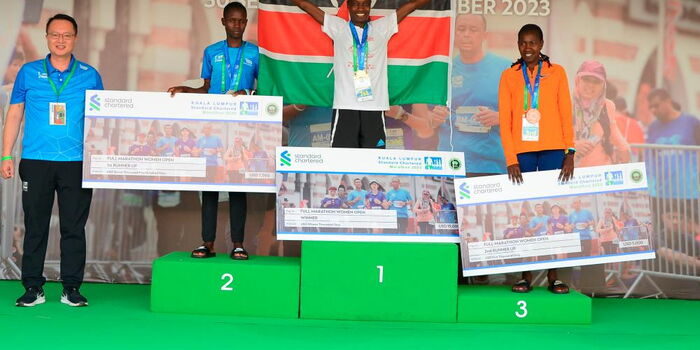The Athletics Integrity Unit (AIU)has released a comprehensive report detailing some of the reasons why athletes, including those from Kenya, hurt their careers by subjecting themselves to lengthy bans for doping and other malpractices.
In a detailed integrity guide released on Monday, December 9, the AIU highlighted how the testing process happens, and why athletes are often found culpable, some inadvertently.
According to the world anti-doping body, some athletes rarely consult with doctors before resorting to supplements to enhance performance. Some of the supplements they use are on the AIU’s prohibited list.
“As an athlete, you have the responsibility to consult with your doctor to understand what is prohibited and what is not.” the guide stated.
Anti-doping agency in Kenya. PHOTO/ ADAK.
According to the AIU, some athletes are oblivious to some ingredients contained in some of the supplements they use, with some ‘natural supplements’ being found to contain prohibited substances.
Also, contrary to popular belief, doping is not only the partaking of illegal substances, as several actions can be classified as doping in the AIU’s books.
According to the body, breaching 11 different Anti Doping Rule Violations (ADRVs) can easily lead to a ban.
Among them include using or being found with a prohibited substance in an athlete’s system, refusing, evading or failing to submit a sample collection by an athlete, an athlete’s failure to file information on their whereabouts, and trafficking of a prohibited substance among others.
Known to very few, tampering with the doping control process is also a serious breach of ADRV.
Dig deeper: The latest guidelines by the AIU come in the wake of serious doping allegations made against several Kenyan athletes, who have subsequently been banned as a result.
One of the more sensational doping cases was highlighted on Tuesday, December 3, when Veteran Kenyan runner Beatrice Jelangat Cherop was slapped with a ban by the World Athletics Integrity Unit (AIU) after admitting to using a banned skin medication.
The AIU revealed that Cherop had tested positive for Triamcinolone acetonide which is typically used to treat a variety of skin conditions.
The drug was classified as an S9 glucocorticoid in the 2014 Prohibited List published by the World Anti-Doping Agency.
A photo of the AJAK emblem. PHOTO/AJAK


